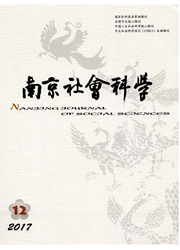

 中文摘要:
中文摘要:
大国治理面临巨量的治理负荷。官民关系是理解国家治理的重要主线,解决社会问题的过程是官民博弈的过程,是考察国家治理的重要切入点。“大事化小”和“小事化了”是中国社会问题解决的两种共生的逻辑,其中政府及其官员根据“大事化小”策略来应对社会问题的压力和挑战,避免监督和问责,社会民众则根据“小事闹大”的逻辑来进行利益表达,以获得解决问题的机会。“大事化小”和“小事闹大”意味着官与民相互提供虚假信息,争夺社会问题的定义权,带来了信息扭曲的恶性循环。这既加剧了官民之间的不信任,也导致了国家治理的不确定性,提高了问题解决的社会成本。
 英文摘要:
英文摘要:
The governance of great state is facing a huge amount of governance load. The rela- tionship between officials and civilians is an important clue of understanding the state governance. And the process of solving social problems equals to the gaming process between officials and civil- ians, which is an important starting point of examining the state governance. "Minimizing Major Troubles" and "Maximizing Minor Trouble" are two coexisting logic of solving social problems in China. Based on the strategy of "Minimizing Major Troubles", the government and its officials may deal with the pressure and challenges coming from social problems, and avoid supervision and ac- countability ; meanwhile, based on the logic of "Maximizing Minor Troubles", civilians are to ex- press their interests in order to get the opportunity to solve the related problems. "Minimizing Major Troubles" and "Maximizing Minor Troubles" mean that the official and the people are providing fake information to each other, competing for the rights of defining social problems, which brings a vi- cious circle of information distortions. This has not only exacerbated the mistrust between officials and civilians, but also led to the uncertainty of state governance, and added the social costs of prob- lem solving.
 同期刊论文项目
同期刊论文项目
 同项目期刊论文
同项目期刊论文
 期刊信息
期刊信息
